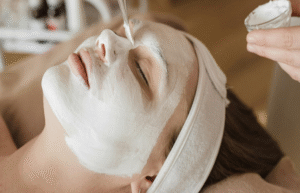How tobacco usage negatively affects oral health

Tobacco use is a well-known cause of numerous health complications, with oral health being one of the most significantly impacted areas. Smokers and those who chew tobacco are at a far higher risk for conditions such as gum disease, mouth ulcers, and even oral cancer. The effects are often visible in stained teeth, bad breath, and recurrent mouth sores, all of which may lower a person’s quality of life. Yet, many remain unaware of the full impact that tobacco has on oral health, particularly concerning painful conditions like tobacco mouth ulcers. Let’s explore tobacco effects on mouth and the steps for addressing these issues, including options for tobacco mouth ulcer treatment.
Tobacco Use and Mouth Ulcers: What’s the Connection?
One of the most common effects of tobacco on oral health is the development of mouth ulcers. Tobacco mouth ulcers, also known as smoker’s ulcers, are sores that often appear on the soft tissue of the mouth, including the inner cheeks, tongue, and gums. These ulcers can be extremely painful and may make it difficult to eat, drink, or speak comfortably. But why does tobacco use lead to mouth ulcers?
When you chew or smoke tobacco, you expose your mouth to a variety of chemicals that cause irritation. This irritation weakens the mucous membrane lining, leaving it vulnerable to injuries and infections. Additionally, tobacco reduces the body’s natural healing ability, so even minor irritations can become persistent and painful mouth ulcers. The effects of tobacco on the mouth are more than superficial, affecting not only the appearance of the teeth and gums but also contributing to chronic discomfort and inflammation.
How Tobacco Harms Overall Oral Health
Beyond mouth ulcers, tobacco use can have severe consequences for overall oral health. People who smoke or chew tobacco are at an increased risk of tobacco effects on mouth like gum disease, tooth decay, and even oral cancer. The gums are particularly vulnerable, as the harmful chemicals in tobacco reduce blood flow, leading to a weakened immune response. For individuals in need of professional care, visiting a reputable hospital in Lucknow can offer access to qualified specialists who can help manage the adverse effects of tobacco on oral health.
One of the most prominent issues for tobacco users is gum disease, a condition that causes swelling, bleeding, and eventual loss of gum tissue. This is often exacerbated by the plaque buildup that accumulates due to tobacco’s effect on saliva production. With reduced saliva flow, the mouth loses a natural defense against bacteria, leading to an environment conducive to plaque and tartar accumulation. This creates a cycle of irritation, inflammation, and infection that can only be managed with consistent dental care and, ideally, cessation of tobacco use.
Understanding Mouth Ulcers in Tobacco Users
Tobacco users may develop mouth ulcers for several reasons beyond direct irritation. Here are some primary factors that explain the mouth ulcers caused in individuals who smoke or chew tobacco:
Reduced Saliva Production: Tobacco decreases saliva flow, which is essential for washing away food particles and bacteria. With less saliva, bacteria can easily irritate the oral tissues, leading to sores and ulcers.
Chemical Irritants in Tobacco: Each time you chew or smoke, chemicals like nicotine and tar create a harsh environment in the mouth. These chemicals weaken the mucous membrane, making it more susceptible to ulcers.
Weakened Immune Response: Tobacco weakens the body’s immune system, making it more difficult for the mouth to heal from minor injuries or infections. As a result, even a small irritation can turn into a persistent and painful ulcer.
Nutritional Deficiencies: Tobacco users often have lower levels of essential vitamins, particularly vitamin C. This deficiency further reduces the body’s ability to repair damaged tissues in the mouth, making ulcers more likely to occur.
Tobacco Mouth Ulcer Treatment: Options and Remedies
Addressing tobacco mouth ulcers is crucial not only for relief from discomfort but also to prevent complications. Effective treatment options vary, but they often begin with lifestyle changes. Here are some treatment options and remedies that can offer relief:
Cessation of Tobacco Use: The most effective solution for treating tobacco mouth ulcers is to stop using tobacco. Although this can be challenging, quitting helps reduce chemical exposure and gives the mouth a chance to heal. In some cases, healthcare professionals can offer support and resources to assist with this process.
Maintaining Good Oral Hygiene: Brushing and flossing regularly, along with using an antiseptic mouthwash, can help keep bacteria levels low in the mouth. This helps prevent infection in existing ulcers and reduces the likelihood of new ulcers forming.
Using Over-the-Counter Medications: Topical gels and mouth rinses specifically formulated for mouth ulcers can offer temporary relief from pain and discomfort. Look for products that contain benzocaine or hydrogen peroxide, as these ingredients can soothe and disinfect the ulcerated areas.
Dietary Adjustments: Consuming a balanced diet rich in vitamins and minerals, particularly vitamin C, can help the body repair damaged tissues faster. Avoid spicy or acidic foods that may irritate mouth ulcers and delay healing.
Regular Dental Visits: For ongoing support and preventive care, schedule regular check-ups with a healthcare provider. If you’re in Lucknow, consider visiting a reputable hospital in Lucknow for specialized dental care. Oral health experts can provide a range of treatments, including professional cleanings, advice on quitting tobacco, and advanced treatments for persistent ulcers.
Long-Term Effects of Tobacco on Oral Health
The adverse effects of tobacco on the mouth go beyond immediate issues like ulcers. Long-term users are at a higher risk of developing serious conditions such as leukoplakia (white patches in the mouth) and erythroplakia (red patches), both of which can be precursors to cancer. The risk of oral cancer among tobacco users is significantly elevated, making early detection and preventive care essential.
In addition to these serious health risks, the damage to teeth and gums is often irreversible. Tobacco stains teeth, leading to yellowing and discoloration that even professional whitening treatments may struggle to remove. Additionally, advanced gum disease can cause tooth loss, which further impacts an individual’s ability to eat and speak comfortably. The detrimental effects of tobacco on oral health serve as a strong argument for quitting as early as possible.
Seeking Professional Help: A Step Towards Healthier Living
While the negative impacts of tobacco on oral health are undeniable, there are effective ways to mitigate the damage. Seeking assistance from healthcare providers, such as those at a reputable hospital in Lucknow, can provide specialized guidance on managing oral health conditions related to tobacco. They can also help patients explore tobacco cessation programs that offer long-term support.
Tobacco use not only affects the mouth’s appearance but also has serious implications for overall health. Persistent mouth ulcers, gum disease, and increased cancer risk are just a few of the consequences tobacco users face. By addressing the problem and seeking tobacco mouth ulcer treatment, individuals can work toward restoring their oral health and quality of life. If you or someone you know is struggling with tobacco-related oral health issues, consider visiting a hospital in Lucknow to access professional care and support for a healthier future.







